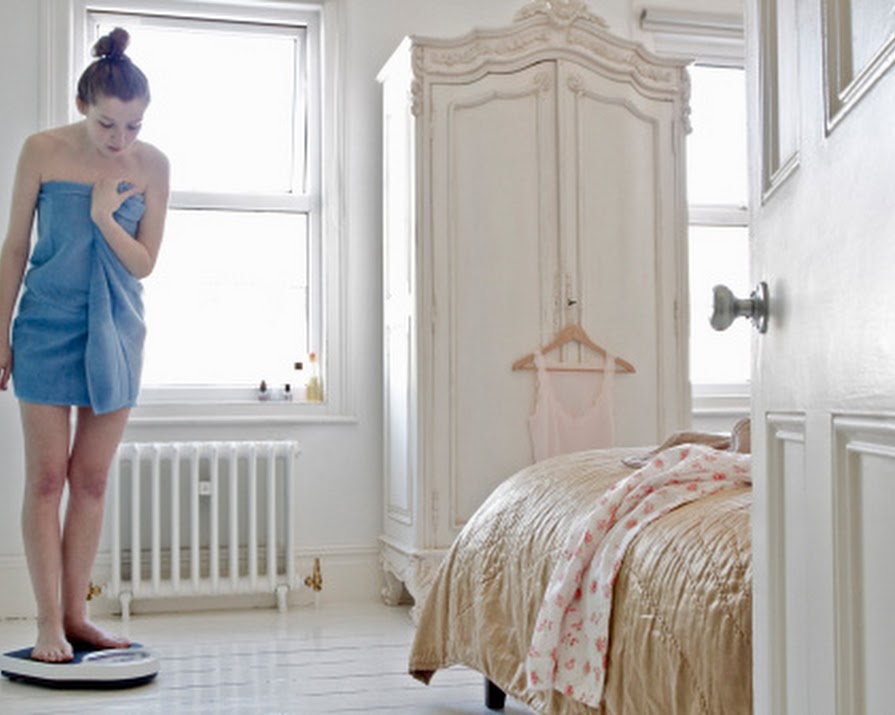
By Niamh ODonoghue
02nd Sep 2016
02nd Sep 2016
Is social media?making you orthorexic – Chances are, it might be. In a world dominated by clean eating and the #IrishFitFam lifestyle, perfect smoothie bowls, weird body trends on Instagram (what the hell is an ab crack???), lifestyle bloggers-turned-health-gurus, and a constant need to be seen as doing the ?on trend? thing, is our obsession with wanting to live a healthy lifestyle becoming, ironically, unhealthy?
By clinical definition, Orthorexia Nervosa – the ?unknown? eating disorder – is the name given to someone who obsessively focuses on what she/he considers as ?healthy eating? by banishing or limiting certain food groups: essentially, it is an?obsession with eating healthy food. The condition is still a very touchy subject for many, and surprisingly, some of the most highly regarded health organisations are still struggling to understand it as a medical condition.” But orthorexia is indeed a condition, and we need to talk about it.?
I’ve often been left with negative feelings of regret or dissatisfaction towards my own body after a few minutes of Instagram scrolling; being drawn into the black abyss of perfect abs, glowing tan lines, and perfect #BikiniBodyReady photos. These negative and low self-worth feelings then transgress into my diet, and ultimately effect what fuel goes into my body that day. My thought-process being; ?but if I eat less carbs and an extra portion of protein post workout then I’ll look like that girl on Instagram.?And while friends and family enjoy a comforting meal at the weekend, I respectfully decline and choose instead to eat my protein-packed fill – worried that I’ll mess up my healthy lifestyle routine. And so, the problem has presented itself: like many other men and women, I’m beginning to slip down a slope with only one outcome.
BodyWhys is the national voluntary organisation supporting people affected by eating disorders. Spokesperson Harriet Parsons tells me the difference between normal eating patterns?and a disorder. ?Think about eating disorders as a spectrum: at one end of the spectrum is how the majority of people eat day-to-day, and at the end is a full blown eating disorder. The question is when does a person cross from one end to the other? That is where compulsion comes in – it’s where a person feels compelled to continue with whatever the disordered eating behaviour is?.
While there is nothing definitive yet to say that social media has caused a rise in the number of eating disorder cases here, I can’t help but think of the devastating effects that it potentially has on the physical and mental wellbeing of men and women; particularly when influential food and fitness bloggers use their huge platforms as virtual feeding grounds?for ill-advised diet advice.
Just look at Freelee the banana girl, an Australian vegan vlogger and self-proclaimed health expert, who has a combined following close to one million. She claims that she retains her ?killer bod? by eating a staggering 51 bananas a day. In this frankly shocking video, she even claims that eating this preposterous amount of fruit increases your chance of having abs. I don’t know what would be worse: potential death by a potassium overdose, or potential death from severe constipation.?There are over 124,000 #BananaGirlDiet hashtags on Instagram showing the thousands of people who are willing to entirely cut meat and carbohydrates from their diets – hoping for similar results to Freelee.?While Instagram makes the banana ‘challenge’ look pretty and enticing, blocking out staple parts of your diet is nonsensical, and promoting this type of lifestyle is irresponsible.
Next came the potato cleanse diet (yes really). Blogger ?high carb Hannah? swears on her Youtube and Instagram channels (having over 97,000 followers on Instagram alone) that loading your body with carbohydrates initiates weight loss after losing 4 stone eating only spuds for one month. I love carbs too, but not enough to destroy my body.
A photo posted by My Weightloss Journey (@brooke.fit.girl) on
How do we achieve a normal and healthy balance?
It’s matter-of-fact that foods high in polyunsaturates, salts etc, and foods that are GM’ed are not good for you (please see Supersize Me), but it seems like there’s no ‘right’ way to eat. My own rule of thumb is to avoid taking health, food, or fitness advice from anyone who isn’t a trained professional.?It’s worth noting that a “nutritionist” is not an accredited profession, unlike a dietitian who is required by law to have a degree in dietetics and nutritional health. While there are some excellent nutritionists out there,?be wary of what advice you’re taking, it’s your body after all.
Opening the discussion of orthorexia to some friends further solidified the need to address it as a serious issue, with one person commenting that “I didn’t even know this was a thing. But yes I’m firmly in that camp. I have ‘good’ foods and ‘bad’ foods, feel guilty if I over indulge or miss a gym session, and I feel like I’m always struggling with my body image”, and “absolutely nobody should be giving health or fitness advice unless they are trained in the area or are qualified. I also believe that it is an obsessive type of lifestyle and anything that is obsessive is not healthy with everything in life”. The general consensus: everything in moderation, and ill-advice is as good as no advice.
If you’re worried that you’re eating habits are off, BodyWhys offers a wide range of services to help you on your journey to health and happiness with food. Visit them here.























